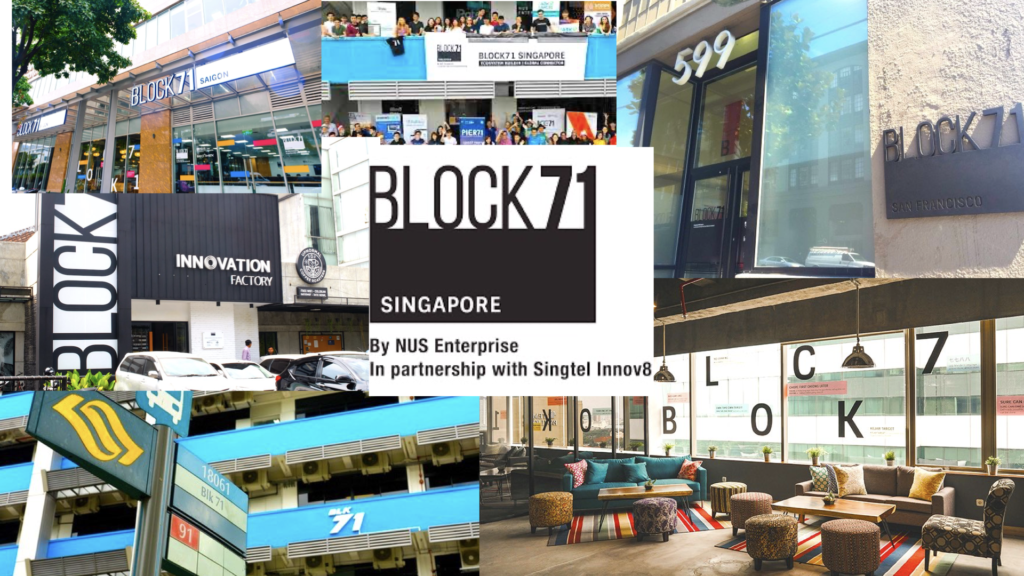
The Evolution of Singapore’s Innovation and Entrepreneurship Ecosystem
From Professor Wong’s Research Paper, I gained a deeper understanding of the intricate cycles of entrepreneurial ecosystems and R&D development in Singapore. Overall, the technological start-up scene in Singapore is still a developing one, heavily focused on ICT and media sectors with very few specialised in deep tech sectors.
Recognising the importance of collaboration between start-ups and established industries to exchange useful insights and manpower related to R&D, Professor Wong advised the NUS Enterprise Incubator program, which includes the Block71 program in Singapore, Indonesia, Suzhou, and San Francisco. These focus on the partnerships between startups, established companies, and government agencies which results in greater development for the start-up community through more integrated connections between the different stakeholders. With the opportunities for mentorship offered to these startups, so they could achieve global development and growth at any point in their cycle. Overall, the program ensures a thriving community of start-ups sustained on lively technology innovation and a comprehensive network of venture capitalists, incubators, and partners to provide these start-ups with the resources and validations required.
Professor Wong’s Endeavours in Promoting Entrepreneurial Talents:
The ability to be an entrepreneur is not something that’s always there. It can be acquired through education. The most common misconception one can have about what being an entrepreneur entails is that they have to start a business, however, that is only a minor role in the entrepreneurial ecosystem. Ultimately, it is the entrepreneurial mindset that is more important – the ability to find existing weaknesses, having the creativity to innovate, and having the courage to embrace the unconventional. This mindset is required in various supporting roles in the ecosystem as well, such as venture investors who require the foresight to identify whether a start-up is promising enough, government agencies that can come up with suitable policies to promote start-ups, incubators, key hires, etc.
Recognising that education plays a major role in inculcating this mindset in students, the NUS Overseas College program aims to bring experiential learning to its students by allowing them to intern in early-stage tech startups around the world. Real-life knowledge is also supplemented by theory through the courses on entrepreneurship taught by leading universities partnering in the program, as well as networking opportunities with notable startup founders. In particular, global learning is a critical aspect of their program, so the students can be familiarised with competition and available opportunities in other countries, an aspect critical in bridging prospective transnational collaborations. With these erudite and critical aims in mind, Professor Wong designed the curriculum for the NOC program.
Key Takeaways:
While not everyone can be ultimately as successful as Mark Zuckerberg or Steve Jobs, it is these qualities that lie in the heart of being an entrepreneur that are empowering, as they can be indiscriminately found in both you and me. Even if one is not, a rather staid thinker, Professor Wong’s paper and initiatives offer us infinite hope that the entrepreneurial mindset can be taught and later acquired. As youths, what’s more important is truly finding our own inimitable passion and niches in our process of self-development, identifying the limitations within these areas, and coming up with our own innovative solutions to solve them.
-Chef Editor Zhang Chenxi
